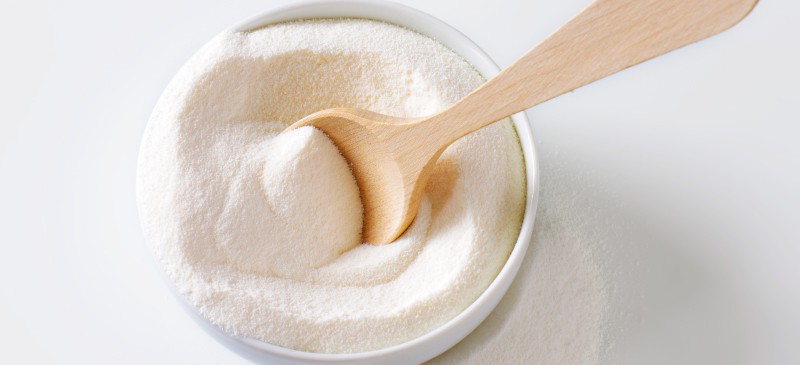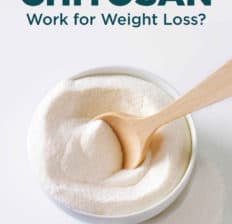This Dr. Axe content is medically reviewed or fact checked to ensure factually accurate information.
With strict editorial sourcing guidelines, we only link to academic research institutions, reputable media sites and, when research is available, medically peer-reviewed studies. Note that the numbers in parentheses (1, 2, etc.) are clickable links to these studies.
The information in our articles is NOT intended to replace a one-on-one relationship with a qualified health care professional and is not intended as medical advice.
This article is based on scientific evidence, written by experts and fact checked by our trained editorial staff. Note that the numbers in parentheses (1, 2, etc.) are clickable links to medically peer-reviewed studies.
Our team includes licensed nutritionists and dietitians, certified health education specialists, as well as certified strength and conditioning specialists, personal trainers and corrective exercise specialists. Our team aims to be not only thorough with its research, but also objective and unbiased.
The information in our articles is NOT intended to replace a one-on-one relationship with a qualified health care professional and is not intended as medical advice.
Does Chitosan Work for Weight Loss or Is It All Hype?
October 3, 2021

They’re touted for their ability to help you lose weight by binding to fat in the body, but do chitosan supplements really work? While there is some evidence that chitosan helps with weight loss, perhaps because it blocks the absorption of dietary fats and cholesterol, the evidence is mixed, at best.
Chitosan has been used for other biomedical purposes, however, and can be found as an ingredient in wound-healing, antimicrobial topicals.
What Is Chitosan?
Chitosan is a sugar, or polysaccharide, that’s obtained from the shells of crustaceans, including shrimp, crab and lobster. It’s the second most abundant natural polysaccharide after cellulose.
Chitosan supplements are used for high blood pressure, kidney problems, wound healing, weight loss and more. Research published in Marine Drugs suggests that it has antioxidant, antimicrobial and anti-tumor properties, but research on its weight loss benefits is limited.
Chitosan has numerous applications and has been used in wound-healing materials, water treatments, pharmaceutical excipient and obesity treatments.
To make chitosan products, the shells of crustaceans, mainly shrimp and crabs, are grouped by size and species, then cleaned, dried and ground into small pieces. Then the pieces go through a purification method, which differs for each treatment or product.
If it’s to be used for biomedical or pharmaceutical purposes, the shells are highly purified, eliminating any residual proteins, minerals or pigments.
Benefits/Uses
1. May Support Weight Loss
There’s mixed evidence on the efficacy of chitosan for weight loss.
A 2008 review published in Cochrane Database of Systemic Reviews analyzed 15 trials including a total of 1,219 participants. Researchers found that chitosan preparations resulted in significantly greater weight loss compared to placebo.
Plus, treatment groups experienced a decrease in total cholesterol and blood pressure. That said, researchers indicate that, overall, the trials in this review were of poor quality, and more evidence is needed to prove that chitosan helps weight loss.
Another review, this one published in the American Journal of Clinical Nutrition, tested the evidence for chitosan, among other commonly used supplements for weight loss like garcinia cambogia and guar gum, to find that there’s no convincing evidence that these supplements work to reduce body weight.
A study published in Obesity Reviews found that the effects of chitosan on body weight was minimal and “unlikely to be of clinical significance,” according to researchers.
2. May Reduce Blood Pressure
A 2017 assessment evaluating chitosan’s effects on blood lipids and blood pressure found that consumption of the sugar significantly decreased diastolic blood pressure at higher dosage and in shorter-term interventions, but it had no effect on systolic blood pressure.
3. Supports Wound Healing
Research shows that chitosan-based compounds may be beneficial for wound healing. They have exhibited antimicrobial activity, fighting gram-negative and gram-positive bacteria.
For this reason, chitosan topicals, such as gels and sprays, are used in wound dressing to reduce swelling and fight infections.
4. May Have Anti-Tumor Effects
Recent investigations suggest that chitosan and its derivatives exhibit anti-tumor activity. It has been shown, in both in vitro and in vivo models, to elevate the production of T-lymphocytes, or white blood cells.
Researchers also found that chitooligosaccharides, which are degraded products of chitosan, have proved to repress tumor growth in mice with lung cancer.
Risks and Side Effects
Chitosan is often considered “generally recognized as safe,” but there’s limited research on its safety, especially for long-term use. It may cause adverse side effects in some people, possibly leading to digestive complaints like upset stomach, gas and constipation.
Chitosan may also reduce the absorption of essential nutrients, including vitamins A, D, E and K and calcium, which may contribute to nutrient deficiencies.
People who are allergic to shellfish may not tolerate chitosan supplements. If you experience allergy symptoms, like rash, throat irritation and stomach pains, discontinue use immediately.
Women who are pregnant or breastfeeding should not take these supplements because there’s not enough evidence on their safety for these groups. Chitosan should not be taken by people who are on blood thinners, such as warfarin, as it may increase the blood thinning effects.
When buying a supplement or topical, choose from a reputable, trustworthy brand that has clear directions and indicates the dosage. Do not exceed the recommended dose.
Supplements and Dosage
Chitosan supplements are available online and in vitamin stores. Read the directions carefully for usage and dosage.
Most brands recommend taking the supplement with a meal.
There is no standard recommended dose for chitosan, and more evidence is needed to make a scientifically proven recommendation. Trials on weight loss have involved three- to four-gram doses, with insignificant results.
For blood pressure, taking up to three grams of a table salt product containing chitosan may be effective.
When it comes to weight loss, the biggest, healthiest and most sustainable impact comes from eating a healthy diet, moving your body and getting enough rest every night. Without these factors in place, no supplement will get you to a healthy weight.
Conclusion
- Chitosan is a sugar, or polysaccharide, that’s obtained from the shells of crustaceans, including shrimp, crab and lobster.
- It’s touted for its weight loss benefits, but there’s mixed research on the sugar’s efficacy for reducing body fat.
- There is some evidence that supplements made with the sugar or its derivatives may reduce blood pressure, and topicals may help with wound healing.
- There’s no clear recommended dose for chitosan, but common doses range from 500 milligrams to four grams per day.













